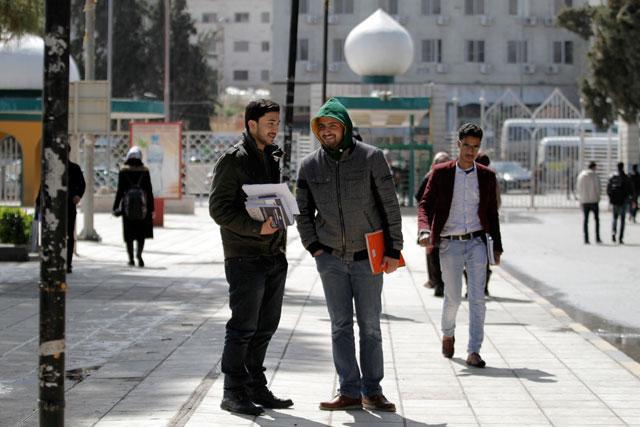- Local News
- Mon-2020-09-21 | 03:32 pm

Nayrouz News Agency :
After the announcement that university admissions will no longer solely depend on the Tawjihi (the General Secondary Education Certificate Examination) but on both the Tawjihi and a new university entrance exam, various criticism and praise were directed at the Ministry of Higher Education and Scientific Research.
Minister of Higher Education Muhyiddine Touq said that the admissions into universities will now depend on the Tawjihi grade by 60 per cent only while the remaining 40 per cent will depend on the entrance exam’s mark.
"This system was followed in Jordanian universities until 1989, until the Unified Admission System was adopted,” said Touq.
Mwafaq Malkawi, a noted cultural and education commentator, said in his column: "The source of confusion is due to the fact that we are not sure whether such a decision can actually achieve the justice that has been absent from university admissions for decades, or whether through it the door of injustice will be expanded, and other doors will be opened such as favouritism and corruption.”
Touq said when announcing the decision that "the new system is fairer than basing university admissions solely on students’ Tawjihi results", citing that more than 60 countries use this system, its application in Jordan was "contested”.
"We live in a society that pays special attention to tribal connections and favouritism, something that affects our foundation of justice and the rule of law. The mere thought of granting universities almost half of the power in granting admissions raises these kinship and nepotism concerns,” said Malkawi.
"I do not think we are ready for such a step at the moment, especially that there are ‘golden’ majors in where the attempts to intervene will be many,” he added.
However, the Unified Admission System in its current form needs to be adjusted, noted Malkawi.
On that note, Mahmoud Balasmeh, an educational expert told The Jordan Times over the phone that this new 60/40 system is "an attempt to fix an already biased system”.
Balasmeh said that if it is implemented well, the new system could "help Jordan become more on par with developed universities as well as help it return to its golden age.”
He noted how it was "illogical” for a students’ fate to be determined by Tawjihi results, citing that almost 17 per cent of medical students change majors compared to the 2-3 per cent international average.
"This means that most of these students were not fit for this major, meaning that their high achievement in Tawjihi, a one-time measure, was not reflective of their actual ability,” he noted.









